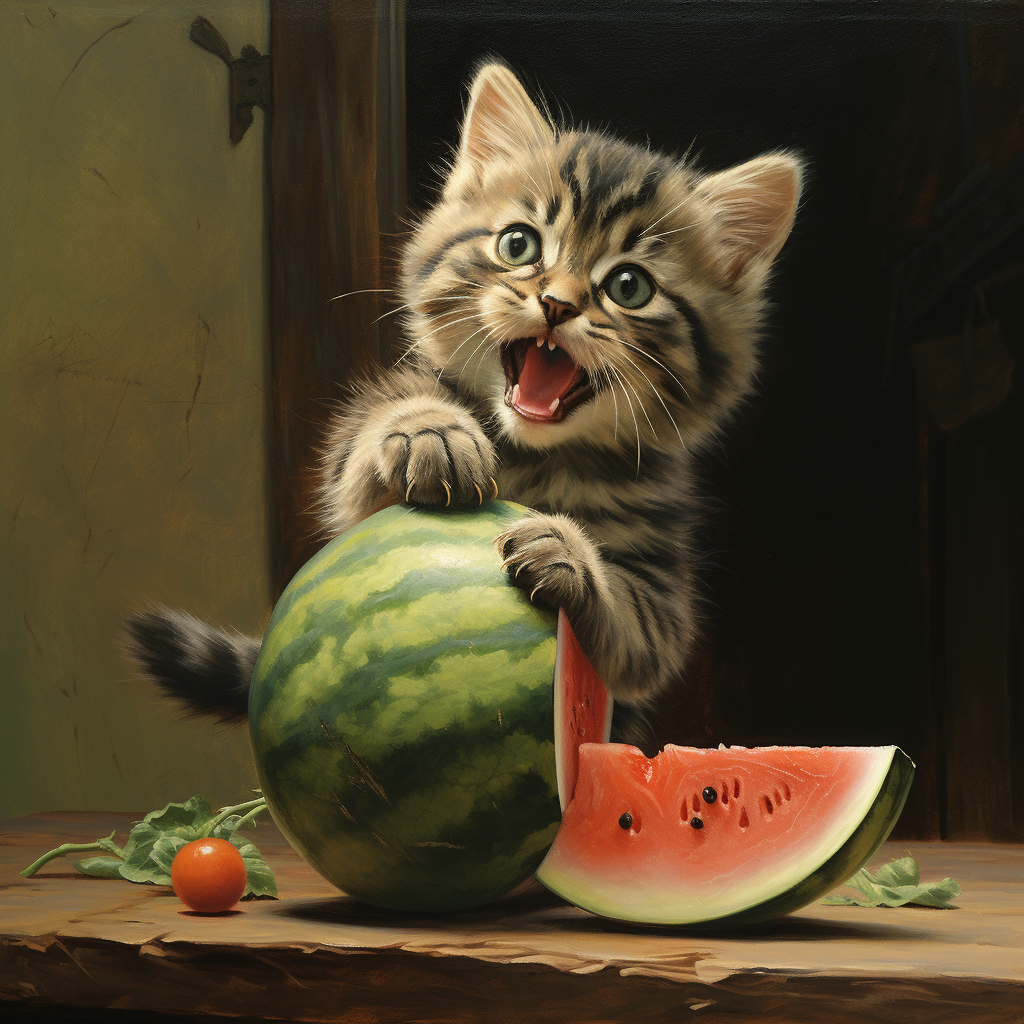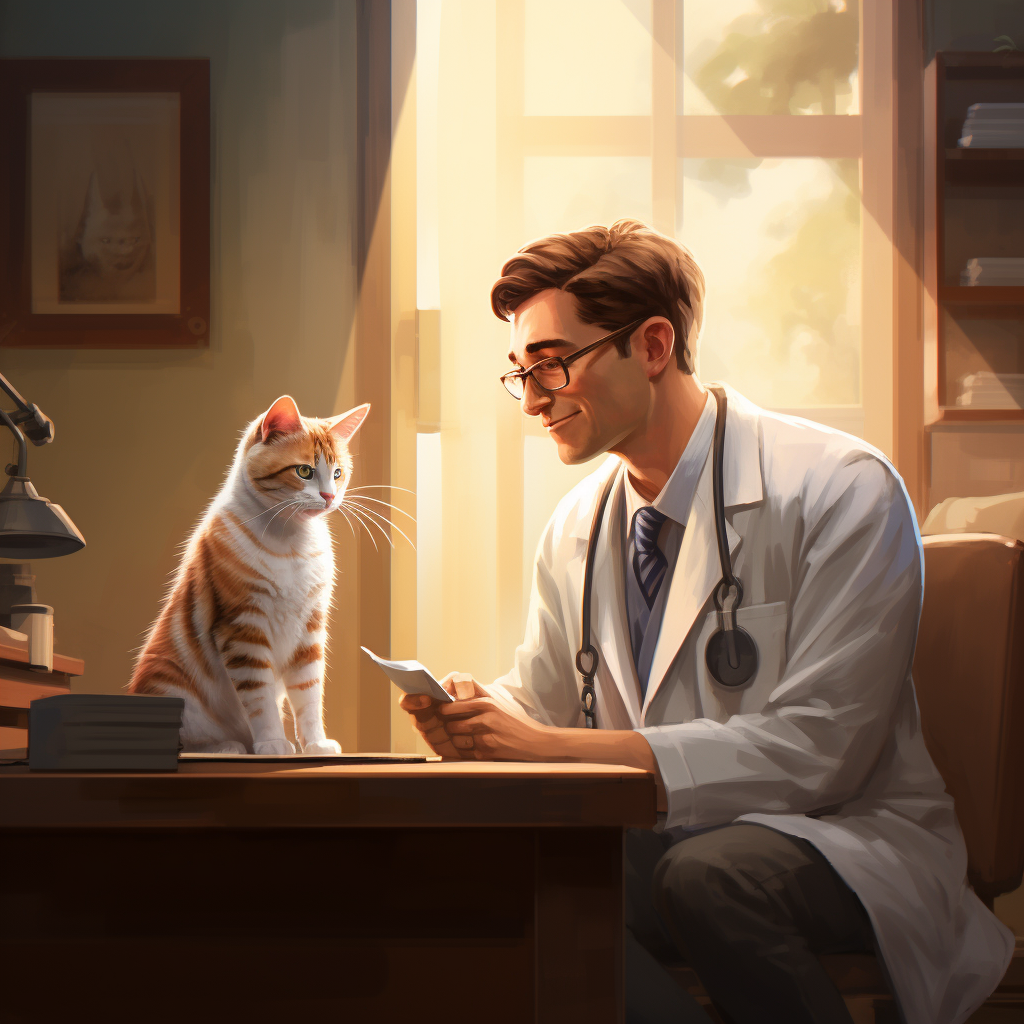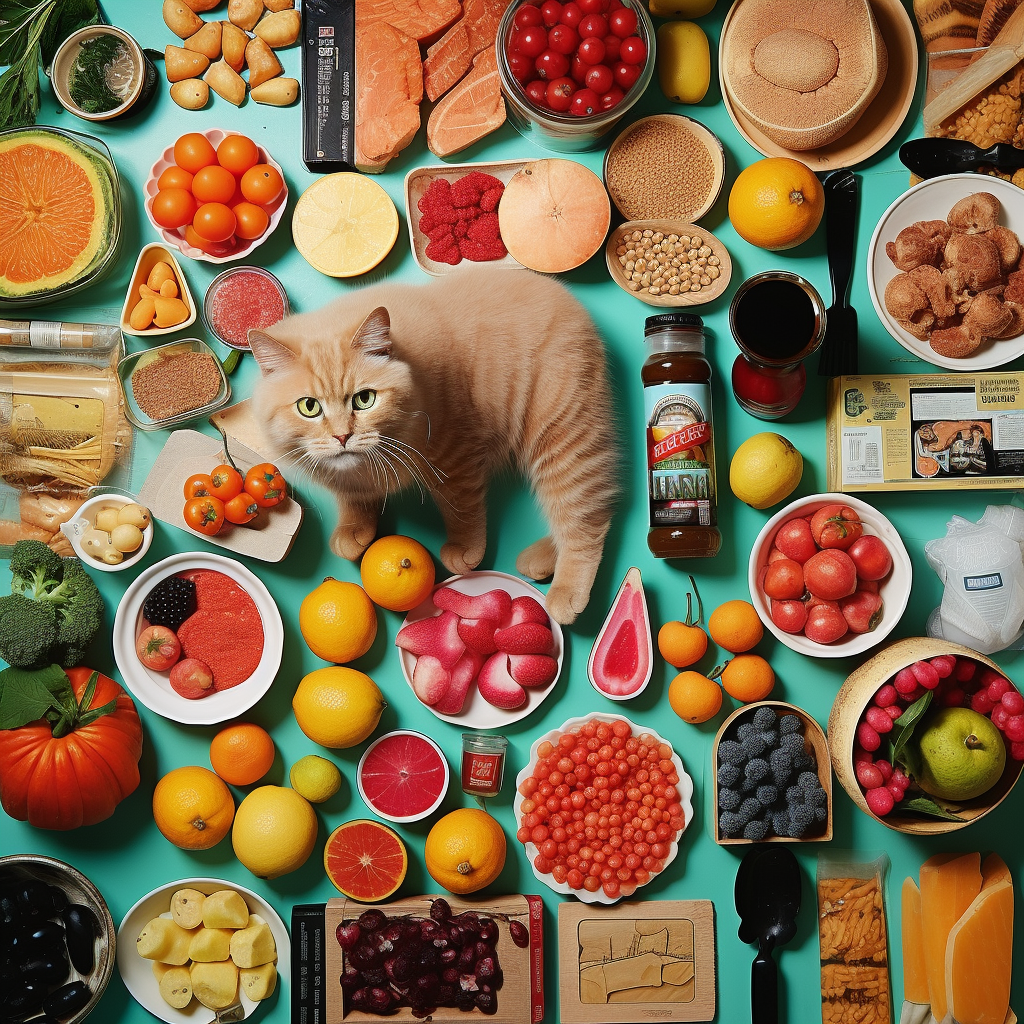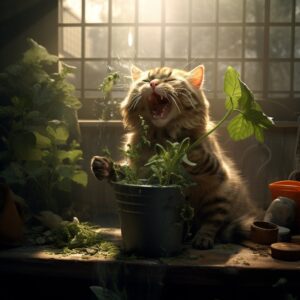
Introduction
Welcome to a comprehensive exploration of feline nutrition and the intriguing question: “Can cats eat watermelon?” While watermelon is a beloved fruit for humans and sometimes shared with our canine companions, its suitability for our feline friends is a topic that requires careful consideration.
In this article, we delve into the intricacies of cats’ dietary needs and the safety aspects of including watermelon in their diet. Understanding what our pets consume is pivotal to their well-being, making it essential to address any potential risks and benefits associated with introducing unconventional foods such as watermelon into their meals.
This article will not only provide insights into the nutritional value of watermelon for cats but also cover precautions, potential risks, and best practices when considering offering this fruit to your feline companions. Whether you’re curious about the benefits or concerned about potential adverse effects, this guide aims to offer a comprehensive understanding of the role watermelon can play in a cat’s diet.
Join us on this journey to explore the relationship between cats and watermelon, gaining insights into their nutritional needs and the best practices for providing a safe and healthy diet for your beloved feline friends.
Understanding Watermelon and Cats
When considering whether watermelon is a suitable addition to a cat’s diet, it’s important to recognize the natural differences between human, canine, and feline nutritional requirements.
Watermelon, a hydrating and nutrient-rich fruit enjoyed by many, raises the question: can cats eat it? While this fruit is generally considered safe for feline consumption, there are nuances to be aware of. Cats, being obligate carnivores, have distinct dietary needs compared to humans and even dogs. Understanding these unique nutritional demands is crucial in determining the appropriateness of feeding watermelon to your cat.
This section will delve into the specific characteristics of watermelon and how they relate to a cat’s dietary requirements. It will explore the safety aspects, potential benefits, and any concerns associated with introducing watermelon to a cat’s diet. By understanding the nutritional makeup of watermelon and how it aligns with a cat’s dietary necessities, pet owners can make informed decisions regarding this fruit’s inclusion in their cat’s meals.
Join us as we explore the compatibility of watermelon with a feline diet, examining the safety considerations and the intricacies of their nutritional needs.
Nutritional Value of Watermelon for Cats
Watermelon boasts a rich nutritional profile, laden with essential vitamins and minerals. It contains vitamins A, C, B1, and B6, along with potassium, magnesium, biotin, antioxidants, proteins, fatty acids, and carotenoids. The fruit’s vibrant red color comes from lycopene, providing additional health benefits, such as decreased blood pressure and cardiovascular disease prevention.
However, while watermelon offers various nutrients beneficial to humans, cats have distinct nutritional needs. As obligate carnivores, they primarily require high protein diets and lack a substantial need for dietary carbohydrates. Watermelon, though hydrating and containing essential nutrients, is relatively high in carbohydrates. While some cats might find it enjoyable, it’s not a necessary component of their diet.
Understanding the nutritional content of watermelon is crucial in determining its suitability for a cat’s diet. This section will delve into the detailed breakdown of nutrients present in watermelon, emphasizing the health benefits and discussing how these nutrients align with a cat’s specific dietary requirements. By understanding the nutritional components, pet owners can make informed decisions regarding the inclusion of watermelon in their cat’s diet.
Join us as we explore the nutritional makeup of watermelon and how it relates to a cat’s dietary needs, gaining insights into its benefits and the considerations for offering this fruit to feline companions.
When Watermelon Can Pose Risks for Cats
Despite watermelon being generally safe for feline consumption, there are precautions and potential risks associated with offering this fruit to cats. While not toxic to cats, feeding watermelon should be approached cautiously.
As with any new food introduction, some cats might exhibit adverse reactions to watermelon. Symptoms such as diarrhea, vomiting, indigestion, or constipation could indicate an intolerance or potential allergy. Monitoring your cat’s response after the first exposure to watermelon is essential. If negative reactions occur, discontinuing the fruit is advisable.
For diabetic cats, the natural sugar content in watermelon, albeit relatively high (1 cup = 9.5g of sugar), poses a concern. Excessive sugar intake can exacerbate diabetic conditions, leading to potential weight gain, digestive issues, and other health complications.
Additionally, while the flesh of watermelon contains beneficial nutrients, the rind and seeds pose risks. The rind can be challenging for cats to chew and digest, potentially causing choking, intestinal blockages, or stomach upset. Moreover, watermelon seeds contain cyanide, which can be hazardous to cats, especially considering their smaller and delicate digestive systems. Seeds also present a choking hazard, particularly for smaller cat breeds.
Understanding the potential risks associated with feeding watermelon to cats is crucial for responsible pet ownership. This section will explore these risks in detail, emphasizing the importance of cautious feeding practices and the identification of adverse reactions in cats. By being aware of these risks, pet owners can make informed decisions and ensure the safety and well-being of their feline companions.
Join us as we delve into the potential risks associated with feeding watermelon to cats, understanding the precautions necessary to ensure their safety and well-being.

Feeding Watermelon to Cats: Best Practices
Introducing watermelon to a cat’s diet requires careful consideration and adherence to best practices to ensure their safety and well-being. To offer watermelon to your feline companion responsibly, follow these guidelines:
- Preparation: Wash the watermelon thoroughly to remove any dirt or pesticides. Cut the fruit into bite-sized, manageable pieces.
- Rind and Seeds Removal: Always remove the rind and seeds before feeding watermelon to your cat. This step prevents potential choking hazards, digestive issues, and other health risks associated with these parts of the fruit.
- Moderation and Observation: Introduce watermelon gradually into your cat’s diet and observe their response closely. Watch for signs of adverse reactions, such as diarrhea or vomiting. If any negative symptoms arise, discontinue feeding watermelon immediately.
- Moderation is Key: Treats, including watermelon, should never constitute a significant portion of a cat’s daily intake. Ensure a balanced, nutritionally complete diet primarily consisting of cat food designed to meet their dietary requirements.
By following these best practices, pet owners can safely introduce watermelon to their cat’s diet while minimizing potential risks. Responsible feeding practices and close observation of a cat’s response to this fruit are essential for their overall health and well-being.
Join us as we explore the best practices for feeding watermelon to cats, understanding the importance of preparation, moderation, and attentive observation to ensure their safety and health.
Check out our other articles on what we can and can’t include in our cats diets:
Can Kittens Eat Watermelon?
Kittens, like adult cats, can eat watermelon but with caution. While it’s generally safe for kittens to consume watermelon as an occasional treat, several factors need consideration:
- Nutritional Relevance: Watermelon offers limited nutritional value for kittens. The fruit is high in calories and natural sugars, which may not be ideal for a growing kitten’s diet.
- Choking Hazards: Kittens are smaller and more vulnerable to choking hazards, particularly related to watermelon seeds. Due to their delicate nature, seeds pose a higher risk, and therefore, it’s advisable to avoid feeding watermelon seeds to kittens.
- Alternative Dietary Choices: Given the limited nutritional benefit of watermelon and potential risks, it might be more prudent to explore alternative dietary options for kittens. Wet kitten food or specialized kitten formulas are more suitable for meeting their specific nutritional needs.
Considering the potential risks and limited nutritional value of watermelon, it’s essential to be cautious when offering this fruit to kittens. While occasional consumption is permissible, pet owners should prioritize other foods that better cater to a kitten’s growth and development.
This section will explore the suitability of watermelon for kittens, emphasizing the need for caution due to potential choking hazards and the fruit’s limited nutritional benefits. By understanding these considerations, pet owners can make informed choices when determining the dietary options for their young feline companions.
Join us as we delve into the aspects of feeding watermelon to kittens, considering their vulnerability and dietary requirements to ensure their well-being and growth.
Alternatives to Watermelon and Healthy Treats

While watermelon can be fed to cats, it’s essential to consider other options that cater to their dietary needs and overall health. Here are some alternatives to watermelon and healthy treats suitable for feline companions:
- Cat-Friendly Fruits: While not all cats enjoy fruits, some may like small portions of certain fruits. Blueberries, bananas, and seedless, peeled apples are some safer options. However, moderation is key due to their sugar content.
- Vegetables: Some vegetables can be a healthy addition to a cat’s diet. Celery, steamed carrots, peas, and cooked spinach are among the vegetables that can be given in small amounts. Always introduce new vegetables gradually and monitor your cat’s response.
- Balanced Cat Treats: Opt for specialized cat treats available in pet stores. These treats are formulated to meet feline nutritional requirements, providing a safe and tasty option for rewarding your pet.
- Cautions on Toxic Foods: Cats should avoid certain foods entirely due to their toxicity. These include citrus fruits, coconut, grapes, raisins, and certain nuts, among others. Avoid these foods to prevent potential health complications.
- Meat-Based Diet: Cats are obligate carnivores, so their primary diet should consist of high-quality cat food that offers a balanced mix of proteins, fats, vitamins, and minerals essential for their overall health.
Understanding suitable alternatives and healthy treat options for cats is crucial in ensuring their dietary needs are met while avoiding potential health risks associated with certain foods. By providing cats with suitable and nutritionally adequate treats, pet owners can contribute to their overall well-being and health.
This section will explore the various alternatives to watermelon and other healthy treat options for cats, emphasizing the importance of providing a balanced diet that aligns with their unique nutritional requirements.
Join us as we explore the diverse options available as alternatives to watermelon and healthy treats suitable for cats, focusing on their nutritional value and safety considerations to ensure optimal feline health and well-being.
Conclusion
In the world of feline nutrition, the query of whether cats can eat watermelon sparks curiosity and concern among pet owners. While cats can consume watermelon, it’s vital to approach this fruit with caution, considering their specific dietary needs and potential risks associated with its consumption.
Understanding the nuances of a cat’s nutritional requirements is pivotal in making informed choices regarding their diet. Watermelon, although rich in nutrients beneficial to humans, may not align perfectly with a cat’s obligate carnivore status. While generally safe, it presents challenges such as potential choking hazards, limited nutritional relevance, and adverse reactions in some cats.
Therefore, when offering watermelon to cats, following best practices such as removing the rind and seeds, introducing it gradually, and prioritizing moderation is crucial. For kittens, extra caution is warranted due to their vulnerability to potential risks associated with watermelon.
Moreover, while watermelon can be an occasional treat, exploring alternative fruits, vegetables, and balanced cat treats designed to meet feline nutritional requirements is prudent. A meat-based diet remains paramount for ensuring cats receive the essential nutrients crucial for their overall health and well-being.
By considering the complexities of a cat’s dietary needs and the potential risks and benefits associated with feeding watermelon, pet owners can make well-informed decisions. Always consult with a veterinarian for guidance on a cat’s dietary needs, ensuring their health remains a top priority.
This comprehensive guide aims to provide clarity on the compatibility of watermelon with a cat’s diet, focusing on the importance of responsible feeding practices and offering suitable, nutritionally complete options for our beloved feline companions.
Join us in prioritizing the well-being of our cats by understanding their dietary needs and making informed decisions regarding the inclusion of watermelon and other treats in their diet.
Additional Resources
For further insights and information regarding feline nutrition and safe feeding practices, consider exploring the following reputable resources:
- American Association of Feline Practitioners (AAFP): A trusted source for cat health and dietary information. Their website offers resources on feline nutrition and feeding guidelines.
- The Cornell Feline Health Center: A comprehensive resource offering articles and guides on various aspects of cat care, including nutrition and dietary advice.
- ASPCA (American Society for the Prevention of Cruelty to Animals): An authoritative organization providing information on pet care and food safety for cats.
- Your Veterinarian: Always consult your veterinarian for personalized guidance and recommendations regarding your cat’s diet and any specific concerns.
Exploring these resources will provide a deeper understanding of cat nutrition, dietary requirements, and safe feeding practices, ensuring the optimal health and well-being of your feline companions.

Cat-Friendly Gardening: Creating a Safe Haven for Your Feline Friends
Table of Contents Introduction Hey there, fellow feline enthusiasts! 🐾 Welcome to a space where your garden becomes not just a patch of green but

From Lilies to Sago Palms: Protect Your Cat from These 10 Toxic Plants
Table of Contents Introduction: Keeping Your Furry Friend Safe from Toxic Plants Hey there, fellow cat lovers! We all know our feline companions can be

Cat Nutrition 101: Decoding Labels & Essential Nutrients A-Z!
Table of Contents Introduction As a cat owner, you want nothing but the best for your furry feline friend. And that includes providing them with
